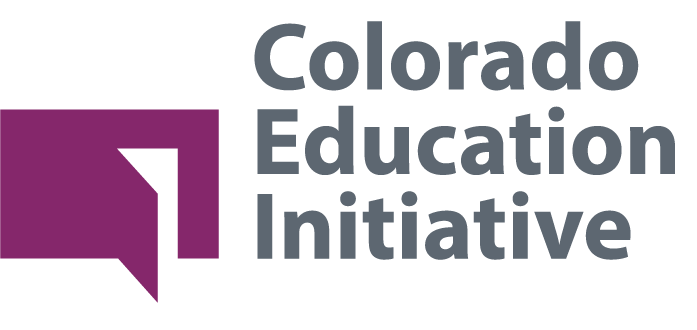The “Real World” of Innovation
July 20, 2018
July 20, 2018
By Paul Beck
Innovation Specialist, Colorado Education Initiative
This is the true story, of seven strangers, picked to live in a house, work together, and have their lives taped. Find out what happens, when people stop being polite, and start getting real… The Real World! Remember this?
MTV’s The Real World captured the imagination of people all over the world. The idea that we could watch a situation that makes most people cringe (spending every waking moment with a group of strangers) play out right in front of our eyes. Most of the time the real-worlders ended up in hyper-dysfunctional situations, but the social experiment made everyone think about how diverse the world around us really is and how complex our connections are.
The Lab at CEI recently brought together 12 strangers to live at a “camp” together, work together, and have their pitches taped. One of the biggest things I learned through this program was how the power of networks of individuals can create opportunity beyond the value of the ideas or actions of any single person.
From the first moments of the weekend retreat in Estes Park these strangers were asked to stand up and share their ideas for innovation in education, open themselves up to building trust and vulnerability, challenge feedback and diverse perspectives, and find support and connections with others. These elements are what make a network a functional and productive community, rather than just a loosely affiliated group of people. That’s why the The Lab at CEI sponsored the inaugural CEI Innovation Fellows program – we aim to build a community of education innovators in Colorado.
Trust and Vulnerability
People who work collaboratively with each other spend years building the kind of vulnerability and trust that is needed to truly know each other. Throughout the weekend of the CEI Innovation Fellows Program, radical connections formed and a group of individuals became a community. A strong network is measured by the strength of its bonds and the strongest bonds are built on trust and vulnerability. I have been a part of many networks, from collective impact efforts to professional communities, but I have rarely experienced a community focused on supporting each other to be successful like this group.
Following the first weekend at “camp,” I reflected on why this group was able to make these connections in such a condensed timeframe. We provided this group with opportunities to connect and work together, but the magic happened in their willingness to “go there.” Every individual was open, engaged, and invested in making this community work. The CEI Innovation Fellows built a foundation of trust and vulnerability that not only allowed them to flourish throughout the weekend, but has also deepened their commitment to their own work and the work of each other. This foundation has allowed for a safe space to challenge each other to do better and be better.
Challenging Each Other’s Perceptions and Perspectives
Entrepreneurship is often about leading a business to become profitable from the nugget of an idea. Educational entrepreneurship is about creating social and personal change for real people. This difference means that a network of educational entrepreneurs must behave differently from other entrepreneurial networks. The network of innovators in the CEI Innovation Fellows Program helped me understand how this difference plays out in the real work of innovating in education. Each fellow in the program was challenged to act as a client and consultant through the first weekend. This meant that each individual had to be open to being challenged and confident that their perspective was important and valued. The mix of individuals in this group brings almost every perspective in the educational ecosystem and represents communities from across the state of Colorado. All of these diverse perspectives have become infused into each innovation through the process of network members challenging others’ ideas and assumptions.
Supporting and Connecting
Access. One of the greatest challenges to successfully launching an innovation is access. Access to funding. Access to decision makers. Access to students. Can innovation survive or thrive without an entrepreneur working tirelessly to connect with networks and maintain those connections? Through the Innovation Fellows weekend, the fellows developed an understanding, and an ownership over each other’s work and successes. Some saw an opportunity to bring the solutions of others into their context while others spent every opportunity working to enhance the ideas of fellow innovators. One fellow commented on our Slack channel to the group; “I’ve never been able to engage people in this effort, despite the need I see in schools, so I really appreciate it! I feel so invested in everyone else’s work and would love to stay in touch on progress and challenges between now and our group calls in July.” This is just one small example of the connections that have been made.
CEI believes in the power of networks to accelerate learning and change. We believe that this is true for innovation and that by investing in innovators and communities of innovators we will see the acceleration of innovations across the state. Innovation cannot develop, or become sustainable in isolation. Innovations must have educational entrepreneurs to shepherd them through the education system. They must also be challenged and iterated upon to ensure they truly solve real problems for the people who need them most. Networks of educational entrepreneurs can accelerate this process by challenging each other’s perspectives and providing access to the centers of power and influence they have in their own networks.
